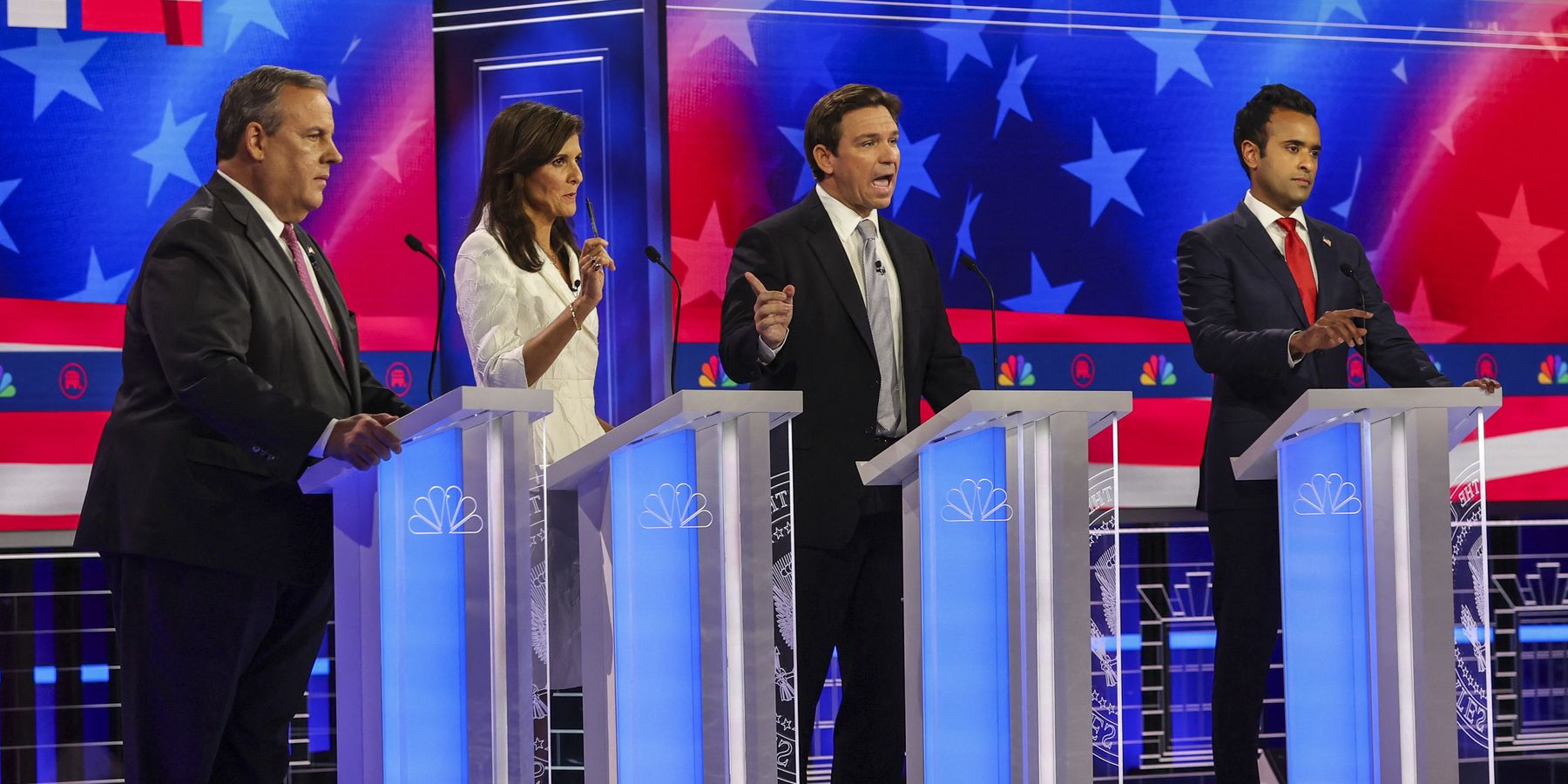Hours after the Department of Defense announced that two F-15s engaged in "precision self-defense strikes" against a suspected weapons storehouse used by Iran's Islamic Revolutionary Guard Corps (IRGC) "and affiliated groups," the Republican candidates on stage at the presidential debate suggested it was not enough.
Said Sen. Tim Scott:
"If you want to stop the 40 Plus attacks on military personnel in the Middle East, you have to strike in Iran. If you want to make a difference. You cannot just continue to have strikes in Syria on warehouses you actually have to cut off the head of the snake and the head of the snake is Iran and not simply the proxies, in order for us to have a powerful response from America we have to be in a position of strength. As president of the United States my foreign policy is simple. You cannot negotiate with evil. You have to destroy it."
By all accounts the Pentagon has been trying to keep the violence in Israel-Gaza from spilling over into the nearby region where it has 2500 troops in Iraq and 900 in Syria (not counting the additional forces that came with the two Navy carrier groups after the Oct. 7 Hamas attacks). It's been difficult. Its troops in both Syria and Iraq have come under repeated rocket and drone attacks, leaving more than 45 with injuries, twice as many as the DOD acknowledged last week.
Then on Wednesday it was reported that an American MQ Reaper drone had been downed near the coast of Yemen, an incident that is still "being assessed." Suffice it to say, things are tense. Responsible Statecraft is tracking the U.S. military build-up, and incidents, here.
These Republicans, who are so committed to looking "strong," "tough," and dedicated to destroying Hamas (their words) and by extension, Hezbollah and Iran (their words), believe that tip-toeing around (or what they called "appeasement") is for children, or, as they referred to President Joe Biden, weak leaders who aren't protecting America.
Former Amb. Nikki Haley:
"We need to understand this as Iran giving the green light telling them (militias) what to do. And we shouldn't be doing the tit for tat like what Joe Biden has done. We need to go and take out their infrastructure that they are using to make those strikes work so they can never do it again. Iran responds to strike. You punch them one and you punch them hard and they will back off... We don't need him (Biden) going and sitting there tiptoeing around Iran, because he thinks they're going to do something you don't respond to an enemy and a terrorist with fear. You respond with strength. When you do that, that's when the world pays attention. And that's when Iran stops."
Haley said there would "be no" Hamas, Hezbollah, or Houthis in Yemen without Iran, and went on to blame China and Russia "who is funding Iran right now...the is a unholy alliance."
Ron DeSantis blamed President Biden for leaving the troops out there like "sitting ducks" and said it would be "hell to pay" if he were president and they were harmed. (He did not say if he agreed they should be in Iraq and Syria in the first place, or if he would bring them home). Vivek Ramaswamy, during his turn to talk about Israel's right to defend itself (a point stressed by each of the five candidates with increasing degrees of vigor, including Chris Christie's "wipe Hamas off the map") did raise a note of caution.
"I want to be careful to avoid making the mistakes from the neocon establishment of the past. Corrupt politicians in both parties spent millions, maybe billions for themselves in places like Iraq and Afghanistan, fighting wars that sent thousands of our sons and daughters, people my age, to die in wars that did not advance anyone's interests, adding $7 trillion to our national debt."
He did not explain what the alternative in the Middle East might look like. Interestingly for the hyperbole expended on Israel and Iran, a slight cooling has started to set in on the GOP candidates' rhetoric on Ukraine. Whereas in the first debate it was all about full-throated support for Zelensky — "whatever it takes" — now Republicans like Scott are saying the Congress should pass Israel aid first and immediately, then debate Ukraine aid and how it should be be spent.
Ramaswamy, who had warned about the lack of a clear strategy from the start, didn't let this slip from note. "I'm actually enjoying watching the Ukraine hawks quietly, delicately tiptoe back from their position as this thing has unwound into a disaster. The first half of this race I was the only person standing for it now they're actually quietly coming around to be more cautious, as they should."
- ‘This whole thing is about Iran’: GOP blasts Biden's Israel ambassador pick ›
- Republicans balk at Biden plan to put Israel, Ukraine - and Taiwan? - aid to one vote ›
















